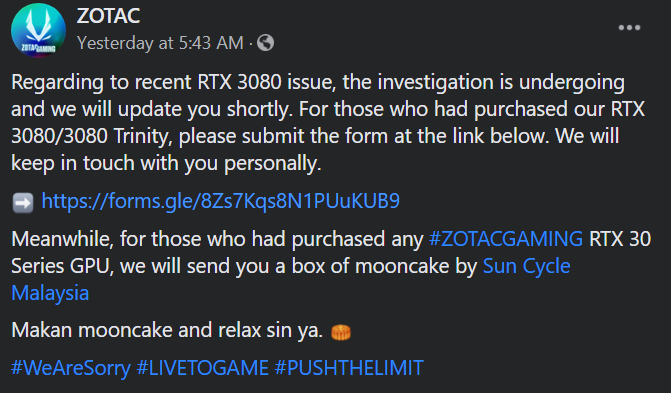Associate
- Joined
- 28 Sep 2020
- Posts
- 4
I get the feeling the manufacturers will find the stable spot and limit the cards to that in a VBios update.
As long as it's above advertised boost there's nothing wrong with that.
Having said that it will likely affect sales if it's known which cards have lower limits than others where as previously the advertised "Boost clock" speeds are all that most common users looked at.
As long as it's above advertised boost there's nothing wrong with that.
Having said that it will likely affect sales if it's known which cards have lower limits than others where as previously the advertised "Boost clock" speeds are all that most common users looked at.





